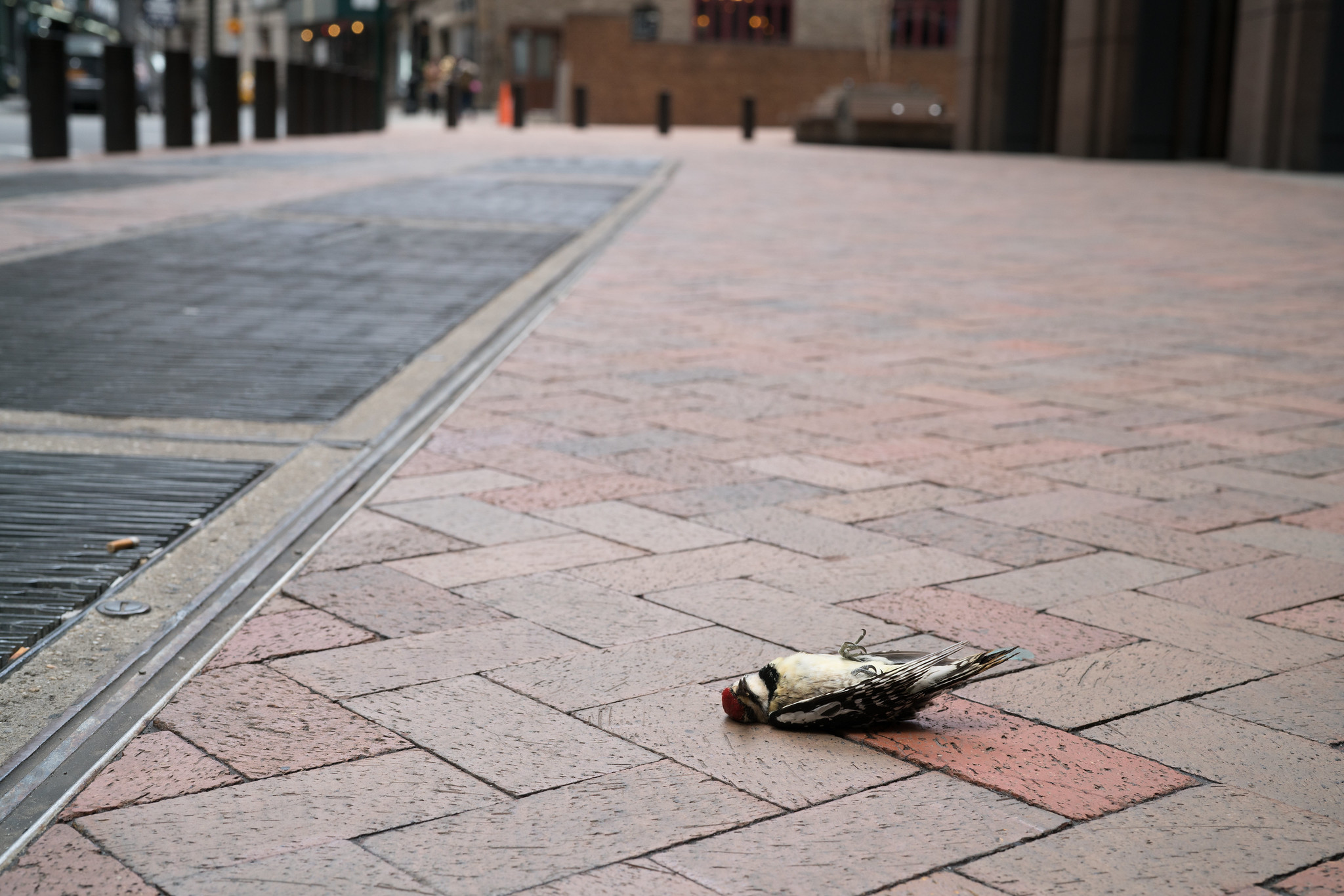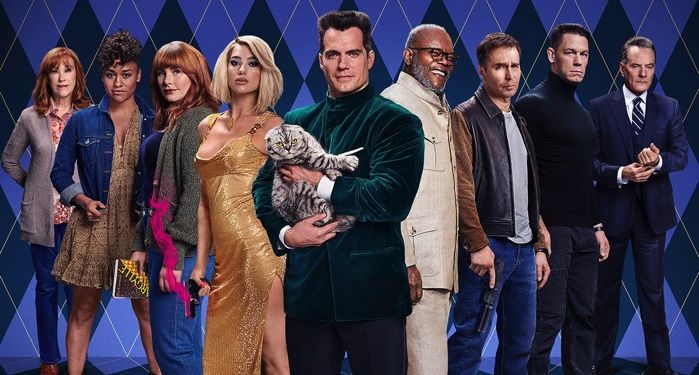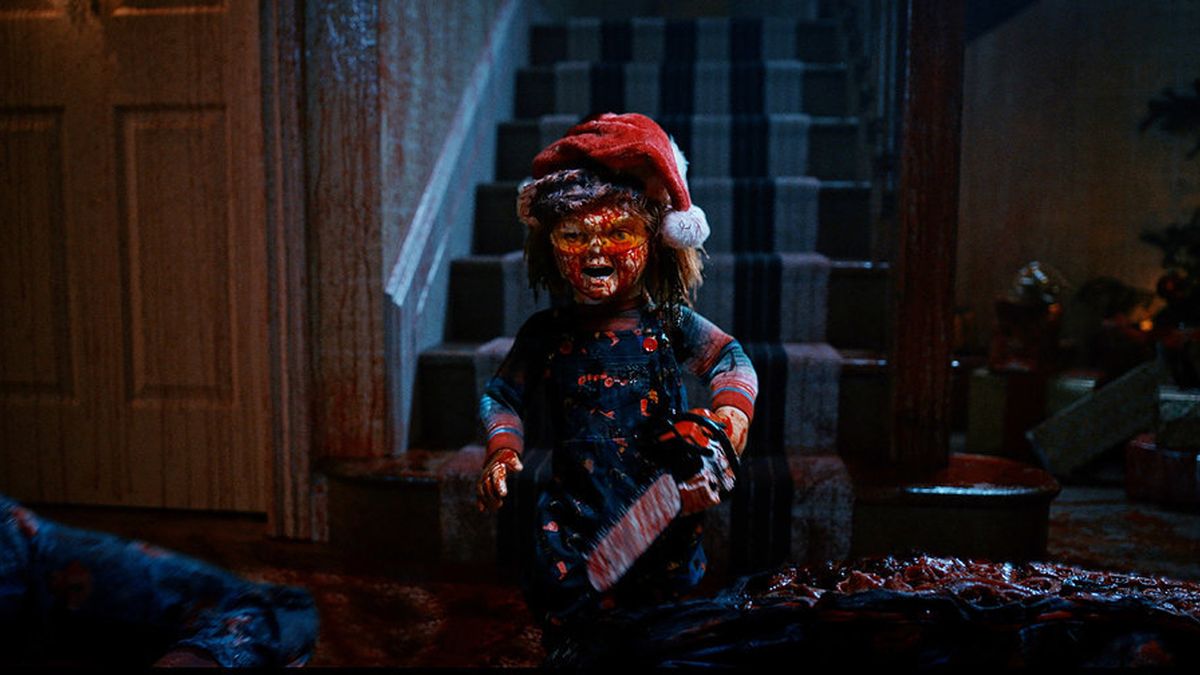All Writing Is About Death
Death in Fiction by Scott Cheshire
I saw Steven Baxter the day before he died. I was ten years old. It was 1983. He was in his middle twenties, and walked toward me on the block where my family lived. His home was not far from ours. His face was heavily made up. This was the 1980s, and I was just a kid. I’d never seen a man in make-up before. My stomach flipped. Despite the make-up, the red cheeks, the lipstick, the eye shadow, I recognized him immediately, and, now I can say his make-up was not only frightening. His face was mysterious, even alluring, unlike anything I’d ever seen in my cloistered life in suburban Richmond Hill, Queens.
As a young Jehovah’s Witness boy I was taught to fear all things and anyone outside of the Witness circle, all referred to as “the world.” Anything “worldly” was considered dangerous, forbidden. Although his Witness family was not “worldy,” Steven was. He was dangerous, and this fascinated me. But on the day I saw him: I waved. He waved back. The following day, he walked in front of a subway car. It was in the papers, and on the tongue of every local Witness. Seeing him that day before made me feel like I was somehow implicated in his death.
Could I have helped?
Might I have spoken with him? Asked him if he was okay?
Until now I’ve never told a soul that I saw him.
Several months before Steven’s suicide, my sister and I were knocking on doors, ringing bells, and selling Watchtower magazines. It just so happened the apartment building the Baxters lived in was on that day’s ministry map. We rang their bell to get into the building. When we reached their floor we decided to say hello. We buzzed and Steven answered. He was not wearing make-up. Behind him were his two brothers, not twins, but only one year apart, and both were cerebrally challenged. They ran around, undressed, with pool-floats around their midsections, repeating: “Don’t look at me. Don’t look at me. We’re naked! We’re naked!” They were laughing.
Steven was not.
He asked if we wanted a glass of water.
Steven Sr., the father, would often yell our way if he saw us in the streets: “Can you wait?”
And our job was to respond: “For what?”
And he would say: “The New System!”
And we would laugh, and he would laugh.
I thought the joke was funny, then, but now, as a grown man, I know a few important things. One, the New System is not coming. It’s never coming. It’s a Witness fantasy that there will be a worldwide paradise, run by Christ, here on Earth, and death will be defeated. Death will be no more, and the sick will be restored, and the deserving dead will be resurrected. I also know that Steven Sr. had more reason than most to wish for it, to have faith in impossible things.
Five years later, in 1988, my good friend Shirley Davis was murdered. She had gone to the store for the Sunday paper and a gallon of milk for her parents, at seven o’clock in the morning. The police found her on the railroad tracks beside a supermarket in Jamaica, Queens. I knew those tracks well. Her skull was completely crushed. She was fifteen, and reportedly had four quarters and a piece of chewing gum in her pocket.
I had not thought of Shirley for years, until I was watching a crime show on TV and the characters were investigating a cold case that sounded almost exactly like hers. Later that same night, on the local news, the reporter said Shirley’s case had been reopened because of new evidence, and that evidence had inspired the episode.
The news then showed a photo, her annual school picture. It was the very same photo in our old family album, where we kept all my friends’ photos. I can still see her innocent face, and her sloping ruffled shoulders, in front of a sepia curtain. Life is boundlessly cruel.
Since I watched the episode I could not stop thinking of them both.
Steven. Shirley.
They shine out like saints in my memory. I imagine both their faces, made-up, restored, young, and innocent, emblazoned on hagiographic candles.
I used to wonder at the strange psychology of the Jehovah’s Witness until I read a line from a book called The American Religion: “When death becomes the center, religion begins.” The Witnesses have invested heavily in the centrality of death. And on virtually any day before this one, before today, perhaps even in some other week, I would claim the opposite for my own life. I confess, now, I’m not so sure.
Recently, nearly a year after the publication of my first novel—no surprise: “a coming of age” story about a young man growing up in a strict religious home—a graduate school here in New York invited me to give a talk about a topic of my choosing, as long as the talk related to writing, to fiction specifically. Perhaps at a loss for ideas, I told them I would talk about death. Death in fiction.
That talk was today.
I started strong, and said to the students: “All fiction is about the same thing. Death. Who said this?”
No one responded.
I then said: “All fiction is about one thing. Me. Who said that?”
A hand tepidly rose.
“Please, yes,” I said.
“Kerouac?”
“Boom,” I said. “She wins. Albeit the quote is possibly apocryphal. But we think he said it. If you ask me both quotes suggest the same penny wisdom. We are all going to die. It’s what we have in common. And so all writing ultimately is about us, and our headlong sleepwalk toward death. So we better make it count.”
The room was silent.
Because these were young people, not yet interested in death. And I was a bit older, and so I was practically old. And I was alone. What could I say?
I needed to lift them up in their seats, and get their attention. Hold it.
And so I shared with them my recollections of Steven Baxter and Shirley Davis, and of the TV episode.
Afterward, I said: “I’m writing a story about them. A short story.”
An eager hand went up.
I nodded.
The young man asked: “Are we talking? Taking questions?”
He was wearing a Joy Division T-shirt, dark eyeliner, and a near smear of dark lipstick. His nails were painted black.
He was beautiful.
I thought to myself, how brazen, this young man. Who did he think he was? But of course, I was jealous. Not of the make-up, necessarily, but the certainty, the confidence it takes to know who you are at that age.
“Have at it,” I said to the young man.
“I think it’s dicey,” he said.
“Exactly,” I said. “Good word, too. Tell me more.”
“You have to be very careful. Respect them,” the young man said.
“Another good word,” I said. “Dicey. Respect. And nice shirt.”
He looked at his shirt as if he’d forgotten what was there. Others leaned forward to see. I wondered what he thought of me: my blazer, my jeans, my moustache.
I shook myself back to attention.
“What I’m saying is: I can’t say I miss Shirley,” I said. “We were too young. It’s been forty years. But this doesn’t change the fact that when I think of her I shudder. Missing her? Kid stuff. Her memory makes me shudder.”
I then tried to recall if Steven was crying when I saw him. I think he was crying.
Was I making these details up? Writing encourages invention. One tends to invent details, to extrapolate. Nevertheless, I think his makeup was running, from crying, and what did I do? I waved? What is that? I did nothing. If I had said his name, or said hello, said something so he could feel seen and feel less alone…
“This too shakes me: Steven was wearing make-up. Should I be saying this? Sharing this… I don’t know.”
There was a mutter in the room, as if I had said too much.
I took in a deep breath, tried to reassert control.
“Why was he wearing make-up? Was it something he did often, or just that one day? What does doing it imply? Was he gay?”
I looked at the student’s blank faces. Some of them appeared frightened. And some were rapt, as if watching a car crash in slow motion. I wondered if I seemed straight to them.
I continued: “The rumors surrounding Steven were that he suffered literal ruthless demons. Religious nonsense. What it took to be gay back then! Or just to be different! I can’t imagine. And so writing about them,” I said. “Dicey, yes. Respect, yes. But how does one do that? Do we do it with brevity? Simplicity? Like black suits at a funeral? Handshakes with the family? I’m sorry for your loss… Or do we do it with metaphor? Fancy Faulkner style. My mother is a fish… Or is it in the details? The things we see when we close our eyes and we want to include everything possible from that space, so the story grows, lives, is inhabited, and cannot be so readily rid of. The rail tracks. I knew those tracks. I knew the scattered coins flattened from passing cars. The rusted spikes in the dirt. The patches of grass growing in between the rails and the wooden ties. The large, old cars that sit unused. I knew the graffiti. The ladders up the sides of cars. The broken bottles on the ground. What else can we do? We bear witness. To it all. Everything becomes holy. Sacred. Even the tossed cigarettes. And this is the work of the writer writing about death. True death. Not manufactured death. The deaths we hold in memory and use for fiction.”
I talked for an hour and a half, pacing back and forth like a large cat in a cage. The room was warm. I loosened my tie, looked at the class for support.
They were stone-faced despite my exasperated demeanor.
Shortly afterward, I was in the university café having a tea when a young woman approached, the same young woman who answered the Kerouac quote. She was one of the few students that seemed genuinely taken with the lecture.
She asked if she could sit, and then sat without waiting for an answer. No doubt, straight A’s, and full of that ambition only the inexperienced young can afford.
I said, “Of course. Yes. Please.” I moved my books that were on the table. Made room.
“Mr. Barrett,” she said.
“Please,” I said. “Call me Tom.”
“Mr. Barrett. Tom.” She smiled at this. “You’re from Richmond Hill.”
“I am.”
“So am I,” she said. “Little India.”
“Yes,” I said. “I used to live behind the Sikh Temple! You know it?”
“I do!”
We both nodded at this.
“I’m curious about something,” she said.
Patient. I sipped my tea.
“Do you know what a Jain Indian is?” she asked.
“I do!” I said, surprised by my own enthusiasm. “Years ago, when I was still a struggling writer—actually I’m still struggling… I worked as an assistant to a Jain man, an events photographer. We did mostly weddings. The weddings he shot lasted for hours, groom brought in on a horse, floral necklaces, tables of neon food. Anyway, he was Jain. A nice man. And I don’t know your name?”
“Dhara.”
“Dhara. Okay. Lovely.”
“So I’m wondering,” she said. It came tumbling out. “Jehovah’s Witnesses. They knocked on my door.”
“Okay.”
“And, well, big surprise to me, I liked what they had to say.”
I now saw I was an object of fascination for her. Not a teacher. “Yikes,” I said. I cringed. It was not a word I usually used. “Now I’m hoping I didn’t say anything back there to offend you.”
I now saw I was an object of fascination for her. Not a teacher.
“I’m just wondering what a former Jehovah’s Witness, like you, would make of a Jain, like me, starting a Bible study with Jehovah’s Witnesses. I might even convert,” she said half-laughing.
I was uncomfortable. This kind of dynamic had changed with the times: respect a wide distance between student and professor.
“That’s entirely up to you,” I said.
“But you’re not curious.”
I sipped my tea. “It’s not my place to be curious about your doings. My apologies if that disappoints you. I mean that with respect.”
She drummed fingers on the tabletop. “Can I ask, why did you leave?”
I answered quickly, my response, as usual, prepared: “I had lots of reasons, most of which are my business, I’m afraid.” Then I paused and thought of my first boyfriend. I didn’t exactly leave the Witnesses for him. He came after. But I did leave because they made me hate myself.
“But those reasons,” I said, “might be summed up: it was my parents’ religion, not mine.”
She bit her upper lip. “I think you might have just summed up my feelings, too. I’ve been trying to do that, but with no luck.”
I fell back on my inclination toward secular sermonizing, took a breath. This young woman knew so little of her latest rebellion. Dabble in Christianity. Please. I launched back into lecture mode, couldn’t help myself: “The Witnesses, certainly, and some of the other protestant American-born Christian denominations, subscribe heavily to the book of Revelation, which is a deathly orgiastic book. And in that book there is even mention of a ‘Second Death,’ from which one can never be resurrected. This would be the case for those after the Day of Judgment who are found guilty and for those who have been resurrected and become slow to appeal to God. They are not sufficiently faithful, and are thrown into a lake of fire where they die a second time and can never be loosed from death again.”
She looked at me as if my hair was on fire.
“What are you saying?”
“I’m saying the Witness faith is deeply invested in the centrality of death. Suffused with it. Some might even call it a fetish.”
She said after a time: “How about the first quote? You never attributed the first quote.”
I must have looked lost.
“‘All writing is about death,’ you said. Who said it?”
I laughed. “Well. You got me,” I said. “Me. I said it. I counted on everyone not knowing.”
“You said it.”
“I did. I quoted myself,” I laughed again.
She nodded skeptically, clearly did not approve. “Ok.”
“Does that bother you?”
“Huh.” She crossed her arms. “Well, I plan to teach someday and I think there is probably some weird fucking pedagogical lesson in there somewhere.”
I was taken aback, became slightly alarmed. Tried to laugh it off.
“Do you believe it?” she said, not quite convinced.
“That all writing is about death?” I said.
She waited.
I thought about it and wanted to tell her how naïve she was, how young. “Yes. To some extent, I do.”
She stood and offered her hand. I shook it.
“A pleasure,” she said. The word rang hollow in her mouth.
She left, but after just a few short steps, she turned, and said, “Can I say it seems like you’re lonely. I like that term, death fetish. Maybe you need to decentralize death from your own life, Mr. Barrett.” She made a face of disappointment, and added, “I mean Tom.”
Then she left.
I obsessed over her comments every remaining minute of the day, into that evening’s dinner.
Later that night, I had a date. We matched on a dating app, my first time using one. I thought again of my first boyfriend, Mossimo, as I dressed. We never had a chance. I hadn’t grouped him with Steven and Shirley because it had been another time in my life, another chapter, but still, he died too young. I must be getting old. There has been too much loss. Shake it off. My date’s name was Bert Rodriguez and we lived in the same neighborhood, South Harlem. We agreed to meet at a casual Italian restaurant, not far from either of us. It was spring, and I was happy to avoid the dank subways. So I walked, and couldn’t help but notice how many baby birds, some barely born, were dead and littering the sidewalk. Some with crunched eggs still surrounding them, others with their beaks cracked. Most likely fallen from their nests. I’d seen the phenomenon before. I live way over on the West Side, by the Hudson River, where there is a lot of wind, no matter how light the day. And the winds sometimes knock nests from their perches, or baby birds from their nests.
Bert and I met out front, shook hands and hugged.
The host asked if we wanted to sit inside or out. We looked at each other. Up to you… No, up to you…
We sat outside.
“So, you’re a writer,” he said.
“Yes, but I can’t make a living at that, so I teach. Wait, you teach, too. Right?”
“Right there in my bio.”
I set my napkin in my lap, and said, “We have something else in common.”
The waitress came over and introduced herself as Tirza, a surprising name, and yet I’d heard of it because I’d once read a novel called Tirza. I asked her if maybe she knew it.
“I do! I read it. It was really good!” said Tirza, nodding her head, cool, cool.
We ordered food. Pastas for us both. We ordered wine. White.
“So my mother, her maiden name was Rodriguez. Like yours.”
Bert covered his mouth, scoffing. “No.”
“I know, I know. White as snow.” I showed my hands. “My mother is from Chile. But my father is from Brooklyn, all the way back.”
“My family comes from Mexico. But I was born in the States.”
“I love Mexico.”
“You’ve been?”
“I used to live in Southern California. We would do day trips. With friends. To the border towns. Great food, all along the way.” I thought of my marriage, its embarrassing collapse.
Tirza brought our dishes.
“First life. First wife,” I said.
He paused, fork mid-air. “Yikes. Sorry.”
I laughed. “Not at all. I came out late. And, weird, I used that word today.”
“Which word?”
“Yikes. It’s a good omen.”
“We’ll take what good we can get!” Bert laughed.
I told Bert about the dead birds. The crunching.
“Simple, pleasant dinner talk,” he said and laughed uncomfortably.
“This is why I’m single. I am a boring, single, white guy with nothing to hide and no game.”
We were silent, for a beat.
“Nothing to hide?” he said. “I doubt that.”
“I’m an open book.”
“I got it,” he said. “How about what’s the weirdest thing you’ve ever done?”
I thought of the beautiful young man attending my lecture earlier that day, his painted eyes, nails, his lips.
“I’m not weird by nature,” I said. “Let me think.”
As I was thinking a small group of four young women approached the restaurant. They talked to the host and were sat outside about four tables away.
I immediately recognized Dhara.
I wanted to speak, but I was busy watching Dhara. She was laughing with her group. All of their necks bending back, laughing.
“I had this one friend, an early boyfriend…” I said, watching Dhara.
Bert waited.
“Sorry,” I said. “It’s just that I know that young woman over there. At the table.”
“She’s a friend? Which one?”
“The one taking her coat off, putting it over her chair. I gave a lecture today, on death in fiction. And she was there. We talked afterward. Over tea.”
“So a fan.”
“Definitely not that,” I said. “Really, I’m just struck by the coincidence.”
I ate.
“Speaking of fans. I read your novel.”
“You did? For this?”
He laughed. “No. I’m a big reader and I happened to read your novel. That’s all. But I liked it! And that’s all I want to say for now.”
“Fine by me. I hate talking about that thing.”
“Anyway. Your story.”
“Sorry. Yes. But you really did read it?”
Bert smiled. “A story about a gay boy making his way out of a strict religious upbringing? I was raised Catholic, so bring it on. I’m sure it wasn’t autobiographical at all,” he laughed. “Maybe I wrote it!”
We both laughed.
I said, “So, I don’t know how weird my story is. I’m sure your story will beat mine. My first boyfriend, his name was Mossimo. We lived in the same building. And he owned the bodega below. We met. It was unavoidable. I was in there all the time. Until one day he said I came in the store just to see him. And he was right.” I laughed. “So one day, I was in his store, I was there just saying hello. And someone had forgotten their change. So he ran out of the store to give it to them. Not sure why I followed him, but I did. I’m also not sure why I’m sharing this…”
“You don’t have to. It’s okay. I don’t want to pry.”
“Not at all. I feel like I need to say it. So, Mossimo runs across the street, and a taxi had just then run a red light and hit him.” I stopped. Wiped my mouth. And started again: “It killed him. I didn’t know that then, I only knew that some asshole hurt my boyfriend and totally unlike me I chased after the cab. Because the cab left, hit and run, so I ran too. Until he got stuck behind a car at the next light, where again, totally unlike me, I opened the driver’s door and dragged the driver out and began to hit him. The cops magically appeared and arrested him. When I got back, I saw Mossimo was dead.”
He leaned back. “I’m so sorry. And this was your first boyfriend? I’m so sorry, Tom.”
“I was overcome, possessed. Outside myself. Dissociated when I hit that guy. That’s the weird part.”
We ate timidly, quietly.
I started to tear up, and wiped my eyes.
“Are you ok?” Bert asked, put his hand on mine.
“I’m fine, I promise. Just seems like death is the theme for the day. Which is my fault!” I looked at Dhara.
“Don’t let me stop you from going over to her to say hello,” he said.
“It’s not like that. She said something and it’s still with me,” I said. “Something still in my craw. Is that what they say?”
He laughed. “Not in New York. No. What did she say? Your student.”
“Oh, she’s not my student, it was just a guest lecture. And as far as what she said, it’s a long story. Plus we shouldn’t talk about work. What about you?”
Bert took up a forkful of pasta and studied it. He then lay the forkful down and said, “I got in a fight with a guy on the subway once. He called me a nasty word, a few of them, actually. About me and the man I was with. I told him to go to hell, and he told me to go back to South America. So I hit him. My fist—his eye. He went down with one punch. The whole car clapped. I got off at the next stop even though it wasn’t mine because my heart was beating like crazy, and I didn’t want him getting up while I was still there.”
I leaned back in my seat. “You’re a legit hero.” I pointed, lightly clapped.
He gave me an appreciative smile, bowed in his seat. “Actually mine pales in comparison to yours. I didn’t lose anyone.”
I looked at Dhara.
“You sure you’re ok?” Bert asked.
“Yeah. Sorry.” I took a deep breath. “I lied.”
“What about?”
“The weirdest thing I’ve ever done.”
“Hit me, Mr. Barrett.”
“It’s not that weird by today’s standards, and I can’t believe I’m telling you this.”
“Bring it.”
“But it is, in context, more weird and I feel like for some reason I’m supposed to tell you this and I’m going to do it but it also feels like a kamikaze mission. I’m going to explode this date.”
He put his fork down. Nodded. “Maybe I’m supposed to hear it.”
“Okay,” I said. “So. My wife. My only wife. My ex-wife. We split up when I was in my early twenties.”
Bert nodded. “Young marriage.” He was listening carefully.
“I can’t believe I’m saying this out loud. We were Jehovah’s Witnesses, like in the book.”
“Okay.”
“So my wife finds me one night.” I visibly cringed. “I was all done-up in her makeup. I thought she would be out late with friends. But she wasn’t. Instead she walked in and found me in the bathroom with my face. Fully made-up.”
Bert smiled. “You queen.”
“She figured out I was gay,” I said. “Before I did. We never got over from it. The marriage floundered and died.”
“There is nothing weird about that.
“I haven’t told you the context. Which is the long story about today. And what makes the make-up weird. In the lecture today, I talked about death. In fiction. I didn’t mention my make-up to the students, obviously. Specifically I talked about the death of two people I knew in real life—not Mossimo, though—and I was explaining how I was trying to use these two deaths in a short story, but I was having trouble. I was kind of using the students to think it through, I think. To help me.”
“And how did that work out for you?”
“Can I tell you the anecdotes?”
“Probably better me than your students, right.”
I shared the recollections, and the airing of the TV episode.
He said, “If you’re expecting me to leave, I’m not.” He slapped my hand on the table.
Then he finished his pasta, every last bite. I liked that.
“What’s weird for me isn’t the make-up. I know I did it maybe to purposely implode the marriage. It’s the connection with the suicide. This is what weirds me out,” I said. “I think I put it on because I wanted to feel what Steven felt. In some way. To feel what it is to want to end everything. Back then, I mean.”
Bert folded his napkin.
“Well, I lied before, too,” he said. “About the weirdest thing I’ve ever done. The weirdest thing I’ve ever done is the last thing I would usually mention on a date, much less a first date.”
The weirdest thing I’ve ever done is the last thing I would usually mention on a date, much less a first date.
“Go for it.”
He inhaled deeply. Put his napkin on the table. “I hurt a man. Five years ago. Killed him. With a bat.”
“Wait. What?”
“Someone was chasing me. He tried to assault me. Followed me into my building, and then to my door, and so I tried to unlock my door before he could catch up. I opened the door and tried to close it, to lock it, but he kicked it in. The next thing I did, like you said with the cab, I dissociated, and grabbed the bat I kept by the door, and I swung once, hit him on his head. Once. Hard as I could.”
“My god.” Bert hummed before me like an angel.
“He fell, spasmed, and then he totally stopped moving.”
“My god.”
“I called the police. They just said good job. That he had done this several times before. Sexual assault. I expected jokes from the cops about men chasing men, about me being Hispanic, whatever. But they didn’t. They were very supportive. Regardless, the one hit killed him. And they said he deserved it. No problem. No charges. Just go with them to the station to make a statement. I did. And I was back home for dinner. All very fast and clean. But it still upsets me. I feel like it wasn’t even me.”
“What do you remember most?”
“About killing him?”
“Yes.”
He paused. “Why would you ask that?”
“I don’t know. I find myself interested in that sort of thing. What stays.”
He looked at me, mute. Then: “I remember how the bat didn’t bounce.” He said, “You would think it would bounce off his head. But it didn’t. It felt like the bat would split him in two.”
I was jealous. What did that say about me?
I looked over at Dhara.
Bert turned and looked at Dhara. Turned back and said, “She offended you, didn’t she?”
“Not exactly,” I said. “Okay. No more mystery. She said I was death obsessed. That it was my ‘fetish.’ And that I seemed lonely. I think she meant problematically lonely.”
He looked shocked. “What does she know?” He was taking an unexpected protective position. I liked it. “How long was the talk?”
“Ninety minutes, give or take.”
“Well, now I know you almost as long as she does, and I think you’re fine. I mean you talk about death a lot. I mean a lot. But you’ve charmed me! You’re fine.”
I thought about this.
Bert asked, “Did you use their real names? In the anecdotes?”
“I changed the names,” I said.
“Well, there you go.”
“Can I ask you something?”
“Of course,” he said.
“Are you afraid less of death after having, well, killed accidentally—is that the right word?—killing someone?”
“In a word, no. I’m not.” He shook his head.
I was disappointed.
“You’re protective of me.”
He laughed. “Honey, you’re fragile. I can tell.”
“Are you one of those guys who always wants to fix their man?” I was half-joking.
“First of all, you are not my man,” he laughed.
“I know! I mean in general.”
“And no. And this is just real life conversation. Get used to it.”
Dhara finally saw me. We looked at each other.
“Tom,” said Bert. “What’s her name?”
I acted like I had trouble remembering. “Dhara.”
“Wave to Dhara, Tom.”
I waved. Dhara waved back.
“You have anything to teach her? A kid her age, about death?”
I thought about this, and whispered: “No.”
Tirza appeared, and took our dishes: “Coffee? Desert?”
“How about more wine?” said Bert. “We’re gonna need it.”
“I’m in,” I said.
Tirza left.
He fully turned and looked at Dhara. “I’ll be right back.”
“Wait,” I said. “Stop!” But he was already gone, and heading for Dhara.
He seemed to speak with her for a solid minute or two. They shook hands, and Bert returned right as the wine came.
“What was that about?” I said. “What did you say to her?”
“I said I was your boyfriend. And that you had mentioned what a promising young talent she was, and to please leave the psychoanalysis to experts like me.”
“You did not! Wait. But you teach English.”
“I know!” he laughed.
He folded his arms.
I said, “I like you, Bert.”
“I like you, too. Cheers.” We clinked glasses. “If you were to write about the end of this date, how would it go? Does anybody die?”
I laughed. “Not this time.”
“Thank god. You know, I wore my mother’s clothes from the hamper when she wasn’t looking. As far as the make-up, you were just looking for a connection. That’s not weird at all. It’s normal.”
I nodded, sipped.
It was a relief, almost too much to take in at once.
He laughed. “And isn’t that the true great secret of us teachers, by the way, and I know you know what I’m talking about. We have nothing really, nothing important to teach. Lessons, yes. Grammar. Math. Blah, blah, blah. But what is all that? Do we know what the meaning is, what real, true meaning there is in life? In death? In the death of your friends? Family? Do we teach anybody about life? Love? Sex? The real and frightening truth, that there might not be one? No. Do we teach anyone how to die? No. And to live well is to learn how to die well. Or so Socrates says. I think. Anyway, now I’m blabbing again.”
He sipped more wine, his cheeks a bit flushed. He was so handsome.
“I’m listening,” I said.
“I don’t know what else to say. But wine always helps. I’m just one man!”
We finished our wine, split the bill, and said goodnight to Tirza. We then shook hands, Bert and I, and hugged—closer and for longer than when we met—and decided we would be in touch. And as I arrived home, in the cool night air, I looked for the dead birds on the sidewalk. But they were gone. I passed by my building, and kept on walking, and soon I found myself on Riverside Drive, standing before the grand Church, there, which reminded me, of all things, of The New System. The Witness’ safe and simple way to think about death. To claim true knowledge of death. To unknowingly obsess. And this had been my inheritance: obsession, displacing life as it truly is. Messy, honest, fleeting.
Dhara was right. I thought I could know death, that I could conquer it in my mind. I suddenly wanted more wine, lots more wine. I was giddy. Bert was right, too. Decentralize! Decentralize! Decentralize! I looked up. And then standing there before the Church, I thought, if there is a God, and more particularly a Jehovah God, and, following that, if there is a New System, then Shirley would definitely be there. Would Steven be there, too? Both of them restored, resurrected. And would I be there to greet them? To ask Shirley what happened? To tell her about my life? My divorce? And what would I ask of Steven? Or would the good Lord keep him from entering paradise? And Mossimo! Poor Mossimo! The gates of the garden would remain locked to him forever. And as for me, who am I kidding. I’m no Witness. None of us will see each other again. Any time we had together has already passed. And then I suddenly said aloud: “I am who I am. I was that I was.” Old Testament-speak. And yet it spoke for me. I took God’s name and made it my own, and walked off into the night.







